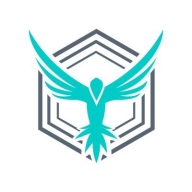

StackHawk and Tenable Web App Scanning compete in web application security testing. StackHawk is favored for pricing and customer service, while Tenable is noted for superior features.
Features: StackHawk provides automation with easy CI/CD integration and clear vulnerability reports tailored for developers. Tenable Web App Scanning offers extensive scanning capabilities, deep security insights, and wide vulnerability coverage.
Ease of Deployment and Customer Service: StackHawk is known for seamless SaaS deployment and responsive support. Tenable Web App Scanning's deployment is more complex, with on-premises and cloud options.
Pricing and ROI: StackHawk offers a cost-effective solution with flexible subscription options, ideal for smaller teams or startups. Tenable Web App Scanning, though more costly, provides significant ROI through comprehensive features and security insights.
Rolling out DevSecOps within an organization requires security tools that fit into existing engineering workflows. From scan kickoffs to findings alerts to backlog prioritization, your DAST tooling should tie in with your engineering stack. StackHawk is built for modern delivery teams and their tools.
Tenable Web App Scanning offers a streamlined approach to identifying vulnerabilities in web applications. Its comprehensive scanning capabilities empower businesses to secure their digital assets efficiently.
Tenable Web App Scanning enhances security measures with detailed scanning procedures that detect and address vulnerabilities swiftly. By automating the scanning process, it delivers extensive coverage and helps mitigate risks associated with web applications. This technology caters to enterprises aiming to bolster their security posture by reducing exposure to cyber threats.
What are the key features of Tenable Web App Scanning?Tenable Web App Scanning is implemented across sectors including finance, healthcare, and e-commerce. Its adaptable nature allows these industries to safeguard sensitive data and maintain regulatory compliance, ensuring that critical operations remain uninterrupted by potential security threats.
We monitor all Dynamic Application Security Testing (DAST) reviews to prevent fraudulent reviews and keep review quality high. We do not post reviews by company employees or direct competitors. We validate each review for authenticity via cross-reference with LinkedIn, and personal follow-up with the reviewer when necessary.